|
As I began writing, the enormity of the topic sunk in. I realized that those in special education are way ahead in their thinking! They realize better than any other that education is not a one size fits all, but should be customized around the strengths and weaknesses of an individual child. They have firsthand experience in creating Individualized Education Plans (IEP) and implementing this style of customized or what *Aurora calls, Personalized and Competency-based Education (PCBE). Nowadays the background experiences of some of the children which give them the label of "at risk" affects their personalities, behaviors, and even though they may not fall under the traditional category of children with "special needs", they still need to be treated as such. Or else we may lose an increasing cross section of population to delinquency, resulting in a burden to society instead of becoming future constructive citizens. Personalization is crucial to not only their success but can and should be done, for all children (typical and atypical). In other words, an IEP for all, albeit a more simplified version of an IEP for typical children. You might say, this is too Utopic an idea, given the diversity of students with regard to race, gender, socio-economic aspects, slow learner, fast learner, LGBTQ, and children with special needs, all together in one classroom being taught by a single class teacher (with a little help hopefully.) That it is not practical or doable. Well, the good news is that with the right kind of support and given the fantastic innovations in technological software, what was impossible, is now possible. Harnessing the support of technology would support the teachers in utilizing their time in more enjoyable and useful forms of learning, such as the potential of fantasy, role play, group discussion, project based learning and problem based learning. Thus personalizing learning to each student and understanding and solving real world problems and scenarios which enhance 21st century skills such as critical thinking, team work, collaboration, multiple perspectives, creativity, imagination and not to forget character building and socio-emotional learning, across a broader cross section of students. This is more important to a student’s growth, learning and achieving success in my opinion than being a stickler to traditional and rigid forms of assessment, strict adherence to seat time and an ‘industrialized’ form of education which does not work efficiently in the ‘information’ age of internet globalization and diversity. Leaders in education, such as Scandinavian countries like Finland, are moving away from silos of subjects and towards “phenomenon-based” learning for their main stream curriculum. Further, personalization and proficiency or competency-based education is already being implemented across the US to varying levels (seek map link below). Also, the benefit of ‘personalization or individualizing an education plan for all’ would have the added benefit of removing the stigma associated with having an IEP for children with special needs. If you refer to the link of the map of competency-based education which facilitates personalization across the US below, you will notice several states with significantly promising state policies and implementation in this area. (Learn more here: https://aurora-institute.org/blog/competencyworks-releases-updated-competency-education-state-policy-map-for-the-united-states/) The funding needs to be better directed towards shifting to more meaningful methods of assessments, where students will no longer take “fill in the bubble exams,” but demonstrate mastery/proficiency in various ways, such as performance-based assessments. This will require significant attention to and investment in building educator and leader capacity for next generation assessments and allowing for the development of more meaningful accountability with a higher focus on achieving greater transparency and equity with multiple measures of student learning and learning environments. My reason for giving you a snapshot of what is starting to happen, in fact has been happening for some years across the US as well as in other parts of the world, is to reinforce the importance of customization or personalization in closing the gaps in learning and bringing a love of learning back to our students. At a time when not only a lot of the states across the US, but also other countries are moving towards personalization of education, so then how can we in Nevada veer away from customization at this nth hour? Thanking you Priya Ahlawat Education Innovation Collaborative
1 Comment
|
Archives
December 2023
CATEGORIES
All
|
|
|
|
|
FOLLOW US
|
CONTACT US [email protected] |
|
Mary Alber, Founding Director
[email protected] 775.224.3736 Priya Ahlawat, Co-Founder [email protected] 774 Mays Blvd Ste #10-453, Incline Village, NV 89451 |
|
|
Website powered by Good Ink
|

 RSS Feed
RSS Feed

